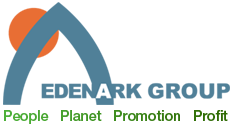Given the demand of consumers, employees, investors, clients and government regulators, many companies are jumping on the “Let’s Say We are Sustainable” bandwagon…..then becoming frustrated they are not seeing the benefits they are hearing others are receiving.
This article lists five reasons your sustainability program is not generating impact:
- Your report is annual – The article talks about timeliness, but our experience is, if you only do an annual report, you have not integrated sustainability into your operation and, like all things, you are not going to gain benefit if you are not focused on it. If you are just checking a box, you will not benefit from your sustainability effort, or any effort, for that matter. We recommend our client Green Teams meet monthly to discuss the projects and action items and we participate in our client Green Teams, to help them stay on task. If you don’t talk about it, people will not know you did it.
- Your report is on a six-month reporting cycle – The article talks about the potential to be overwhelmed with data collection and analysis, causing a long life-cycles between reporting. We solve this via monthly meetings that are short, concise and action-oriented. Less overall time is committed, updates are easier, the team is engaged, performance is easier to analyze, and operational improvement remains the key goal.
- You spend all your time collecting data and not using it – The article talks about organizations forgetting that the goal is not to produce a report but to improve the organization. Simply stated, this problem occurs when there is too big of a gap between the sustainability team and the leadership team. Having a CEO letter is not going to solve this problem. Active, engaged, company leadership is critical to ensuring your sustainability program benefits the company, rather than simply being a document on the shelf. We require members of our client leadership teams to be involved in the Green Team, to ensure focus is on performance and operational enhancement.
- You are not certified under a standard – Many companies try to custom-build their own sustainability programs. This provides great job security for those who custom-built the program, but it seldom works well or stands the test of time. Further, +70% of consumers disbelieve a company’s sustainability claims if not backed up by being part of a legitimate, respected global standard. Next, that custom program is going to have trouble with meeting compliance without a 3rd party validation. Net, if you choose to build from scratch, and you are not aligned with a global standard, expect to always be out of step, always be questioned and always be under-performing versus your peers who are certified under a global standard. We follow the world’s top sustainability standard to ensure our clients benefit from being part of the top program and gain from the scalability and credibility of same.
- You are not providing enough context – The article talks about the need for truth. Companies that make claims like “carbon neutral by 2040” without detailed back up, are damaging their reputations. Our program requires a 3rd party audit to ensure accuracy. This protects all parties. We also help our clients develop and publish their regular and supportable sustainability posts / releases, to ensure the narrative ties to supportable actions.
Basically, this is all common sense. Consumers, employees, investors, clients and government regulators want your company to be legitimately and supportably (ie, certified) sustainable. The benefit in doing so is significant to your company; and you can do it cost-effectively, both in time and money, if you follow the proper program.
Edenark Group helps companies all over the world cost-effectively benefit from becoming environmentally certified sustainable. Watch this master class, then contact us.
